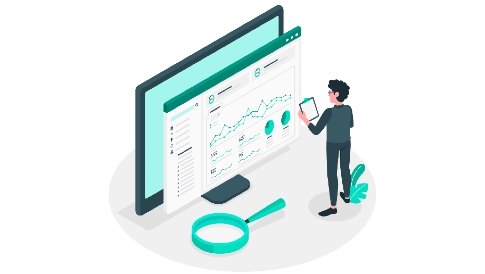Real-time analytics are increasingly important for businesses in the age of data-driven decision-making to gather insightful knowledge and motivate prompt action. High-performance big data software development is crucial for achieving this. Big data software development services are essential for helping businesses to harness the power of real-time analytics to glean insightful and useful information from enormous and continuously streaming data sets. We will examine the difficulties and methods involved in big data development & analytics services. Keep reading to learn more!
Streaming Data Processing: The Foundation of Real-time Analytics
The capacity to process streaming data in close to real-time is one of the core components of real-time analytics. Time-sensitive analytics use cases are poorly suited for traditional batch processing techniques. Streaming data processing frameworks like Apache Kafka and Apache Flink provide the tools to ingest and analyze data as it flows in real time. Teams working on big data applications can use these frameworks to create fault-tolerant, scalable systems that quickly process large amounts of data.
Event-Driven Architectures: Enabling Real-time Data Processing
Using event-driven architectures is essential to achieving real-time analytics. These architectural designs separate system parts, enabling asynchronous event-based communication between them. Events are important adjustments or occurrences in the data streams. Real-time data sources and big data processing platforms can connect smoothly using messaging systems like Apache Kafka or RabbitMQ. This allows enterprises to collect and analyze incoming data immediately, allowing them to make choices on time and based on the most recent information.
Integration with Real-time Data Sources: Ensuring Data Freshness
Real-time analytics strongly depends on interfacing with real-time data sources to guarantee data freshness. This can come from various sources, including sensor data, clickstream data, social media feeds, and IoT devices. Big data engineering services are responsible for designing and implementing connections and pipelines that continually gather, verify, and transform data from these sources in real time. Reliable data input procedures must be established to manage data in motion effectively. Access to the most recent data guarantees that analytics apps can provide decision-makers with reliable insights. However, mastering the technical aspects of data engineering is crucial for successfully working in this field. Online resources like DP-203 Exam Dumps offer a focused way to enhance your expertise in data engineering and prepare for related certifications.
Achieving Low-Latency Responses: Addressing Time-Sensitive Use Cases
Low-latency answers are necessary for analytics use cases that involve timing, such as fraud detection, real-time monitoring, or predictive maintenance. Big data development teams must maximize their application performance to give insights instantly. Data caching, in-memory computing, parallel processing, and query and algorithm optimization are just a few of the methods that can be used to accomplish this. By utilizing these techniques, companies can reduce the time it takes between the arrival of data and the development of actionable insights, enabling them to act quickly in response to urgent situations.
Scalability and Fault Tolerance: Handling Big Data Volumes
Applications for big data are built to manage enormous amounts of data. Scalability and fault tolerance are crucial in the context of real-time analytics. Distributed computing frameworks like Apache Spark and Apache Hadoop provide the scalability required for parallel processing and analyzing big data sets. The system may manage failures gracefully and maintain high availability even under intense workloads by implementing fault-tolerant design features, including data replication, checkpointing, and auto-scaling.
Conclusion: Harnessing Real-time Analytics with Big Data Software Development Development & Analytics Services
Real-time analytics allows businesses to glean insightful information and quickly reach data-driven decisions. Businesses may create high-performance big data application development that supports real-time data processing, interaction with real-time data sources, low-latency replies, and scalability by utilizing big data development and analytics services. By leveraging big data software development services, businesses can overcome the challenges of building high-performance big data applications.
Real-time analytics is a game-changer for firms looking to make data-driven decisions in hectic circumstances. These tools let businesses draw valuable conclusions from enormous, continuously streaming data sets, resulting in quick decisions and a competitive advantage in the market.
Creating real-time analytics apps is a challenge that big data software development services must guide through enterprises. These services offer the knowledge required to overcome the difficulties presented by event-driven architectures, integrating with real-time data sources and attaining low response latency.
